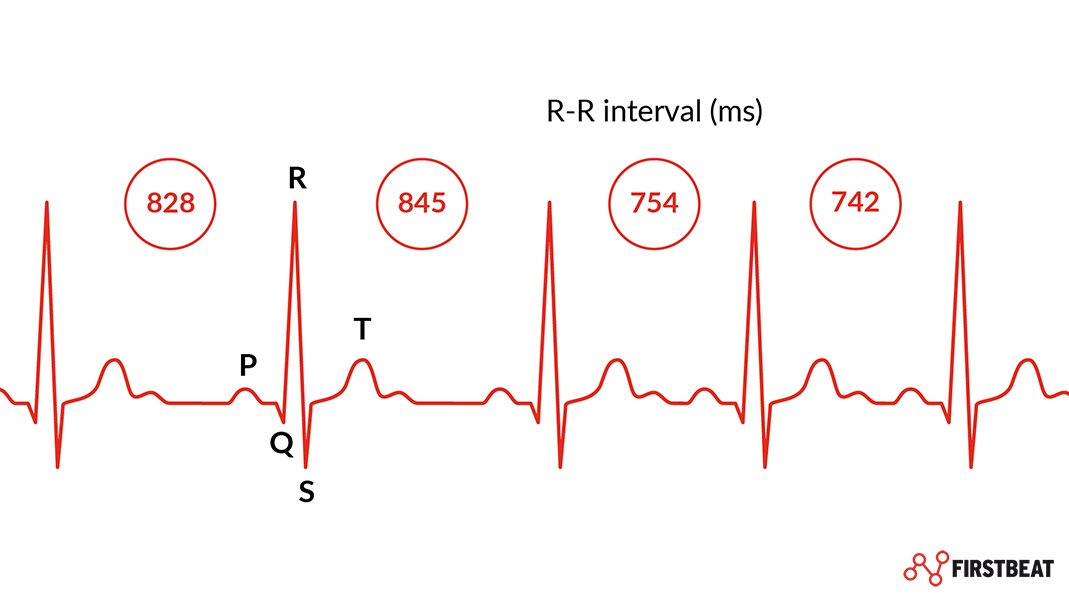During sleep a slow heartbeat with rates around 4050 BPM is common and is considered normal. Other causes often associated with the elderly include the after-effects of a heart attack low thyroid production high blood pressure heart infections and inflammatory disorders.
 What Is Heart Rate Variability Hrv Why Does It Matter Firstbeat Blog
What Is Heart Rate Variability Hrv Why Does It Matter Firstbeat Blog
But if its too slow it could be a symptom of a condition called bradycardia.

Reasons for slow heart rate. Most cases of pathological. Your heart rate may fall below 60 BPM during deep sleep. A slow heart rate might occur because the sinus node.
Slow heart rate can be caused by. Bradycardia is a heart rate thats too slow. Athletic and elderly people often have a heart rate slower than 60 bpm when they are sitting or lying down and a heart.
Highly trained athletes may also have athletic heart syndrome a very slow resting heart rate that occurs as a sport adaptation and helps prevent tachycardia during training. A slow heart rate is considered anything slower than 60 beats per minute for an adult or child at rest. Some metabolic disorders can slow the heart rate.
When an individual has a low heart rate one of the more common causes is an underlying heart problem. Also electrical heart problems can make it impossible for your heart to respond to exercise. In general for adults a resting heart rate of fewer than 60 beats per minute BPM qualifies as bradycardia.
Modifications in the heart that are the outcome of aging. Regular exercise tends to slow your heart rate down. Heart disease can lead to a slow heart rate in a variety of ways described here.
Aging leads to a general weakening of the heart which can cause a slow heart rate. Causes of a Slow Heart Beat Slow heart beat can occur with age or as a result of damage from a heart attack or heart disease. Results of observational research studies support a link between health and heart rate.
These consist of coronary artery disease heart attack and infections such as endocarditis and myocarditis. Its a sign of good health. A resting heart rate slower than 60 bpm is considered bradycardia.
Your heart rate should be strong and regular without any missed beats. Normal causes that can lead to a slower heart rate may include the following. Thyroid problems or sleep apnea can also be a trigger.
And physically active adults. Whats considered too slow can depend on your age and physical condition. If you have bradycardia and you have certain symptoms along with the slow heart rate then it means your heartbeat is too slow.
Generally you want a slower heart rate when youre resting. You may also have blood tests to find out if another problem is causing your slow heart rate such as problems with the thyroid gland or electrolyte imbalances. A heart attack or other trauma to the heart for example can cause problems with the hearts natural pacemaker.
This can sometimes cause a persons heart to beat too fast or too slow. Diseases that harm the hearts electrical system. Elderly people for example are more prone to bradycardia.
Discharges electrical impulses slower than is normal Pauses or fails to discharge at a regular rate Discharges an electrical impulse thats blocked before causing the atria to contract. One of the most common is hypothyroidism in which the thyroid does not produce enough thyroid hormones. But there are exceptions.
This causes the heart rate to fall to 45 beats per minute. In his prime champion cyclist Miguel Indurain had a resting heart rate of just 28 beats per minute Stress medications and medical conditions also influence your resting heart rate. Slow heart rate causes and conditions Normal physiological causes.
Hypothyroidism can affect the health of. A normal resting heart rate for most people is between 60 and 100 beats per minute bpm. Other common causes include an underactive thyroid gland and medications that slow the heart like some blood pressure or heart medications says Dr.
In this the electrical signal passes through the upper chamber but misses the beat at the lower chamber due to. Consult your doctor if you are experiencing some of these symptoms and you have an associated slow heart rate.

